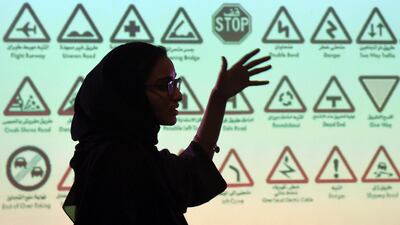While increasing women’s economic participation is undoubtedly a long overdue and necessary change, it also means some sectors will experience initial turbulence, analysts say.
The Dubai-based ride-hailer Careem, for example, which has a growing presence in the kingdom, expects a 5 to 10 per cent decline in its female customers after the driving ban lifts in June as more women choose to drive their own vehicles. This may be offset to an extent by the increase in female Careem drivers, meaning more women taking rides with female drivers - whom they feel more comfortable with, says Abdulla Elyas, Careem co-founder and chief people officer.
Jeff Schuster, analyst at LMC Automative, says: “We expect to see downward pressure on car services as more women choose to drive for themselves. This could limit growth or even contract service population.”
Meanwhile, hundreds of thousands of male chauffeurs, both company and privately employed, who were hired to drive women around are at risk of losing their jobs. An exodus of drivers to their home countries could impact domestic Saudi consumer demand, which is already pressured by low oil prices.
With its efforts to combat unemployment among Saudi Arabians, the very nature of the Saudi job market is likely to change as the government introduces fees to make hiring expats more expensive and announces certain jobs off-limits to expats.
“With the strong push for Saudisation and introduction of the VAT, we believe the expat population could fall moderately this year,” says Monica Malik
_______________
Read more:
Women are a growing influence on banking in the Middle East
Women in IT look to narrow the gender gap
_______________
Saudi women will also gradually replace more expats in retail, services, hospitality and finance sector, says Nasser Saidi, consultant and former chief economist of Dubai's DIFC.
As part of its National Transformation Plan, the kingdom is also planning to increase the small and medium business sector’s contribution to non-oil GDP, job creation and access to funding. But although the SME sector is another area where women can add value, further reforms are required to ease business set-up procedures and access to credit for female entrepreneurs, analysts say.
“In a slow-growth environment where unemployment remains high, it will take some time to really build momentum,” says Ms Malik. “It’s going to be challenging regardless of gender. You need to have a growing economy and job availability” for Saudi Arabia's targets of female participation in the workforce to be met.
One support factor, Ms Malik says, is the transfer of existing jobs to nationals.
“Social change is a key area of progress in the transformation plan but a boost in economic activity and diversification is limited so far," she says.
"There’s Saudisation at this [time] more than new job creation.”


